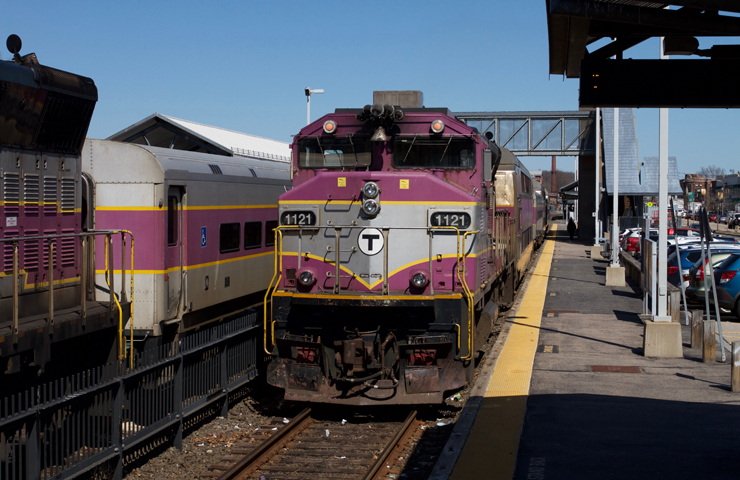
BOSTON — A new poll indicates 70% of MBTA riders did not feel safe during a trip. Respondents also gave the MBTA low ratings for its service. This is according to survey conducted in mid-August by MassINC Polling Group and funded by the Barr Foundation, says a report on WBUR.
The results indicate 70% of current and former riders felt unsafe at least once or twice due to the condition of buses, trains, stations, and other infrastructure. A similar number of respondents indicated they felt unsafe for other reasons, which could relate to personal safety or crime, says Rich Parr, MassINC senior research director.
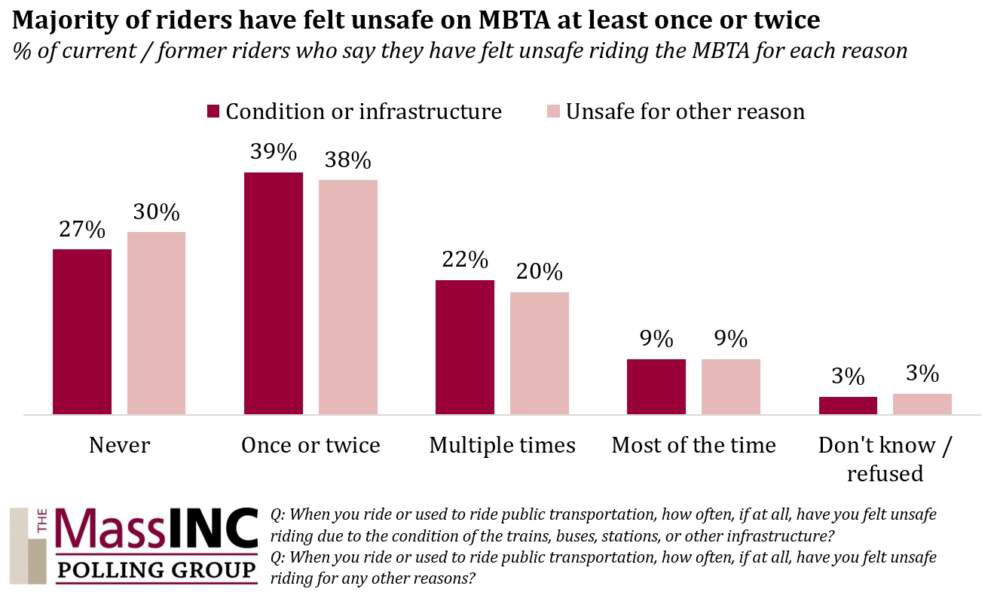
“The safety issue is kind of a baseline thing that the T needs to provide to people,” Parr said. “They need to think that they’re going to be safe when they’re riding the T.”
The MBTA has been plagued in recent years with safety issues, lack of investment, and
deferred maintenance [see “Panel’s report says ‘safety is not the priority’ at MBTA,” News Wire, Dec. 10, 2019]. The problems, including deteriorated tracks, forced the agency to implement slow zones across the system this year.
Concerns about safety appear to factor into the overall service ratings. According to the poll, only 28% of respondents rate the quality of the subway and trolley service as at least good. And 35% said the quality of bus service was at least good. Meanwhile, the commuter rail had more positive ratings — 42% rate it as good to excellent.
The survey reflects responses from 1,000 residents in the 175 MBTA-served communities, and includes regular riders, former riders and non-riders. The poll was taken before the MBTA announced a partial Red Line shutdown this fall and before a safety report that found organizational failures led to the slow zones and other subway issues this year.
The poll indicates people are split on the future of MBTA: 45% saying it will be better in 10 years, 46% say it will stay the same or get worse.
MBTA ridership has not returned to pre-pandemic levels. When asked why they were riding less, the top responses included:
- working from home,
- choosing another mode of transportation,
- concerns about the speed and reliability of service.
Respondents also indicate that there are two things that would get them to use the MBTA more: Free rides and more reliable service. More than half of residents said this would make them more likely to use the transit system.






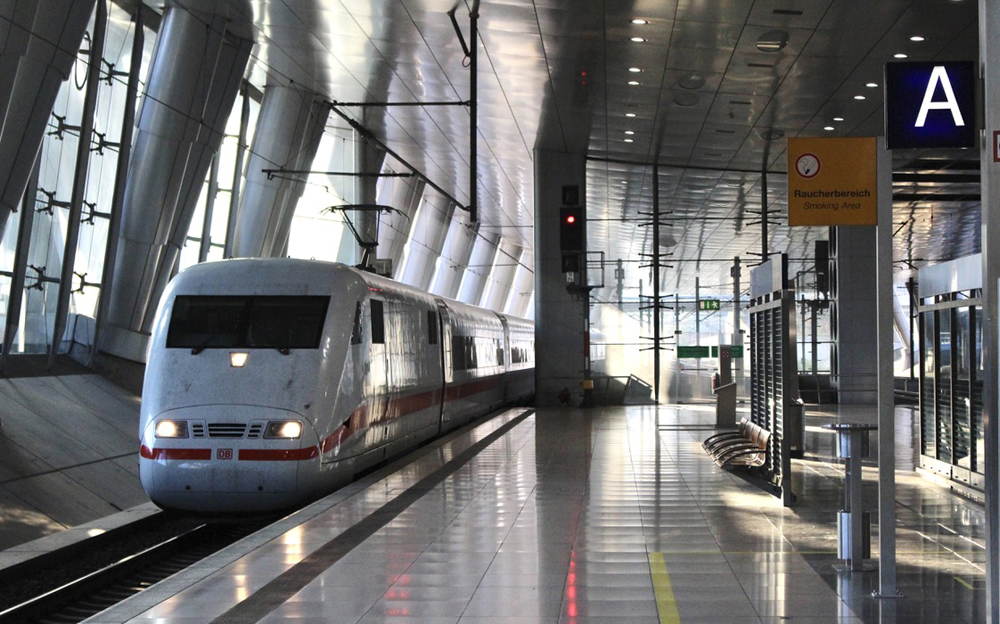
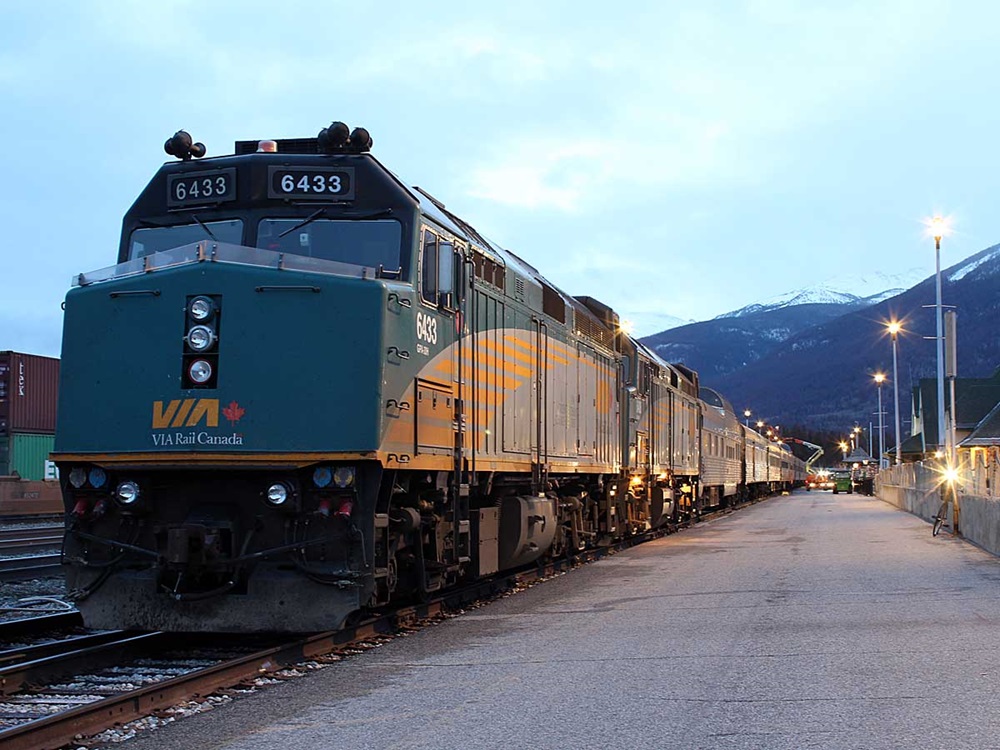
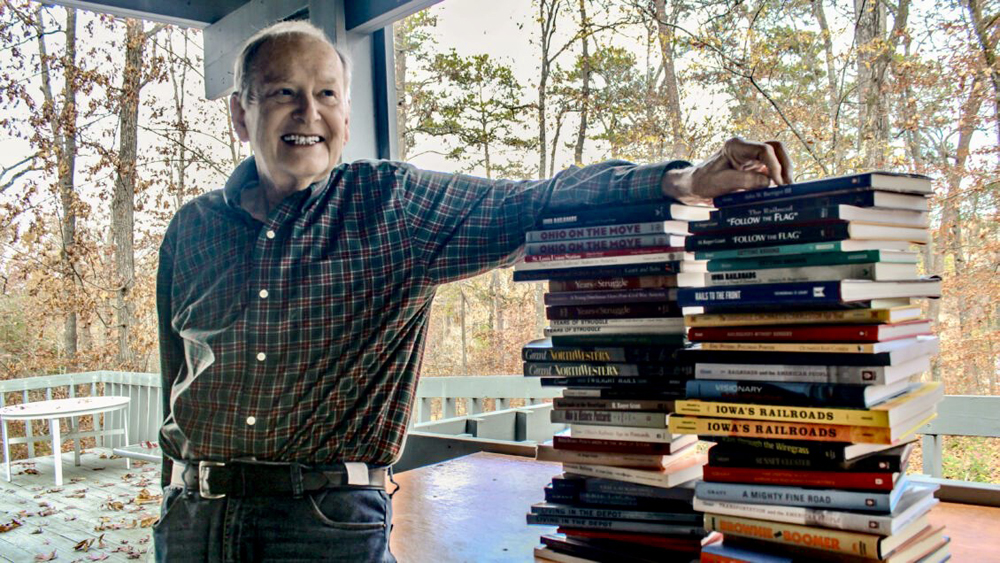
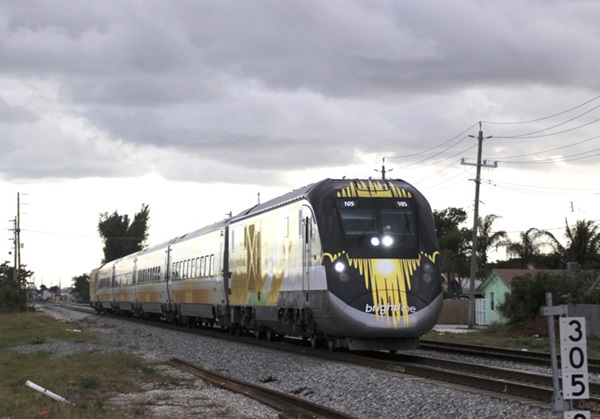




People complain about the T service but any attempt to raise the fares to pay for it is rebuffed by people wanting it all to be free. There is no such thing as a free ride.
The problems with safety cited are, from I read in the Boston Globe, are on the T’s Boston in-city transit systems, the subways, buses, and I guess the light rail (Green Line) as well. The things generating personal safety worries are not happening on the Commuter Rail lines. So why does the Newswire illustrate this article with Commuter Rail trains and not Red, Orange, and Blue Line subway trains?
It also means that the trains become mobile homeless shelters further turning people away from using public transit. Crime has also risen on other failed “free transit” services.
Nothing is free, somebody pays.
Free rides would mean the cost would be borne by all the taxpayers.